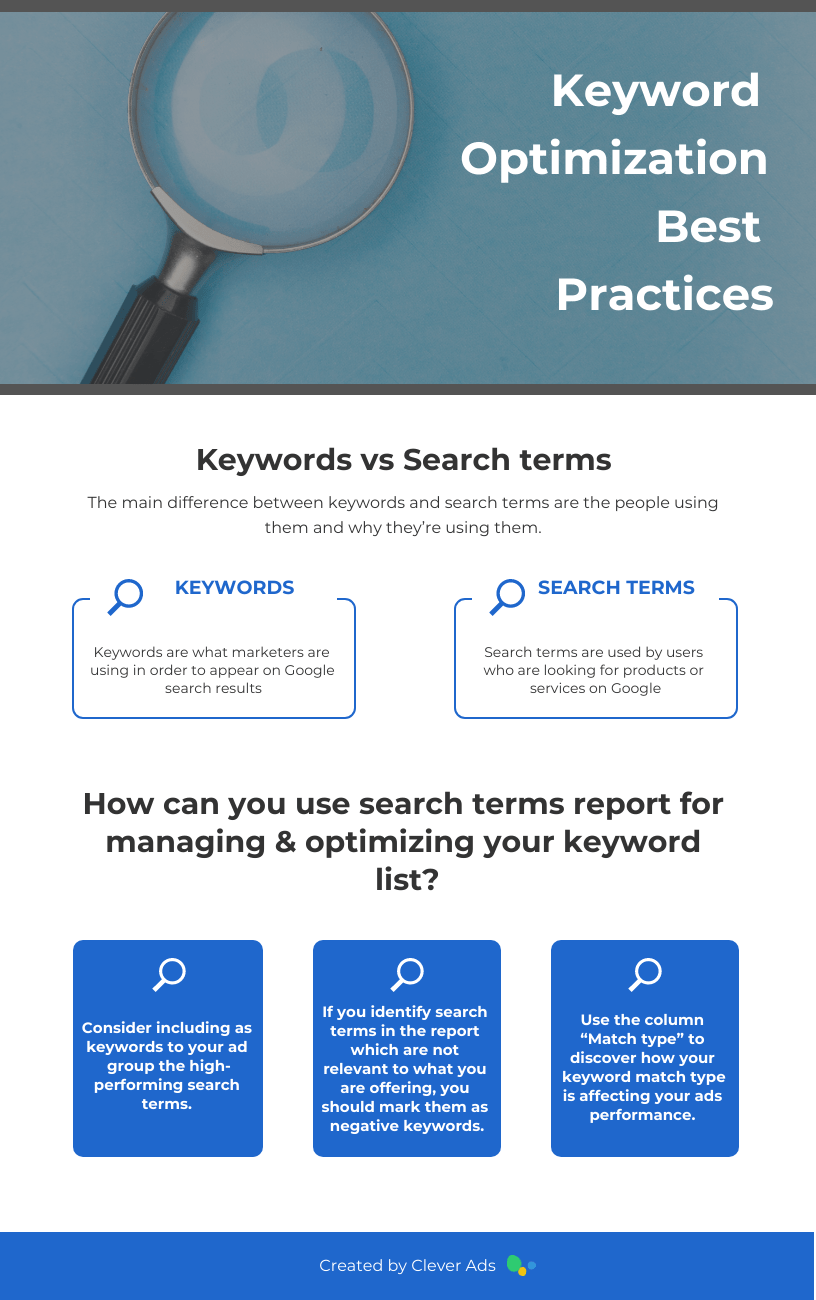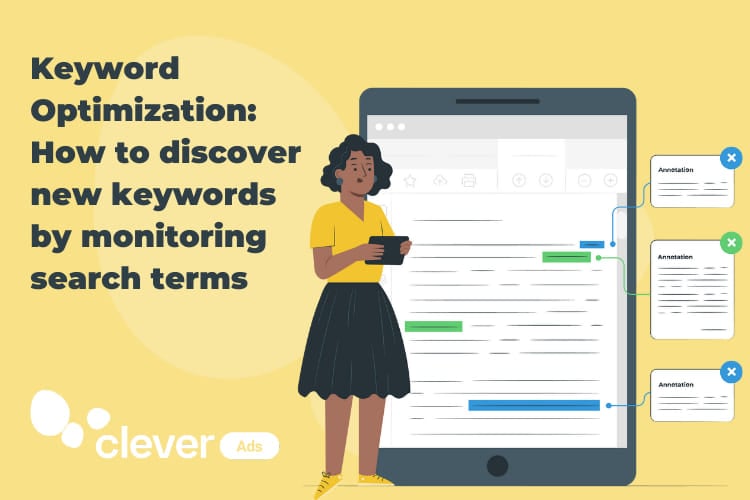Keyword Optimization: How to discover new keywords by monitoring search terms
Before we look into keyword optimization, let’s do a short recap of all the necessary information. Here are some questions you’ll want to be able to answer: What are keywords? What are search terms? What is the difference between the two? Once these have been answered, we’ll be ready to explore the world of keyword optimization for your Google Ads.
What are keywords?
“Words or phrases describing your product or service that you choose to help determine when and where your ad can appear.” (Source: Google Support)
One of the first steps you need to complete before launching your ads on Google is to step into your customer’s shoes. This will help you understand which keywords they are using when looking for your products or services. Finding the right keywords is immensely important because if you miss out on certain keywords, your ads won’t be appearing to those searching for what you are offering.
A well-curated keyword list can contribute to a higher quality score of your ads and eventually a lower cost. For an optimized Google Ads strategy and use Google Ads best practices, your keywords need to be relevant to your landing page and ads.
What are search terms?
“A search term is the exact word or set of words a customer enters when searching on Google.com or one of our Search Network sites. A keyword is the word or set of words that Google advertisers create for a given ad group to target your ads to customers.” (Source: Google Support)
The main difference between keywords and search terms are the people using them and why they’re using them. Search terms are used by users who are looking for products or services on Google, while keywords are what marketers are using in order to appear on Google search results.
It’s also important to know that it is likely for a user to incorrectly type in what they are searching for, but Google will usually steer them in the right direction. This is important when strategizing your keywords to fit with search terms.

Keyword optimization based on search terms
Understanding your search terms report
Google Ads will provide you with a powerful and truly insightful keyword search term report. By consulting this report you are able to see the search terms that people typed on Google that triggered your ads.
When looking at this report, you will find the “Keywords” column. This column informs you on which of your keywords were triggered with it’s accompanied search term. The report doesn’t include this column by default, so make sure you activate it by clicking the icon . After that click on “Attributes”, then check the box beside “Keyword” and click “Apply”.
In this report you will also find the “Match type” column. This will indicate how closely related the search terms that triggered your ads are to the keywords you are bidding for in your Google Ads account.
How can you use this report for managing and optimizing your keyword list?
As we mentioned above, this report is truly insightful for your Google Ads strategy. Let’s see how you can use it to your advantage and improve the performance of your Google Ads campaigns:
- Consider including as keywords to your ad group the high-performing search terms. If you do so, you should also modify your bids respectively. This is recommended for the following reason: These search terms are already receiving traffic (as they appear in your report), and by adding them as keywords wouldn’t mark any big difference if you don’t make any changes to your bids or ad texts.
- If you identify search terms in the report which are not relevant to what you are offering, you should mark them as negative keywords. This will prevent your ads from showing to people who are looking for something that you do not offer.
- Use the column “Match type” to discover how your keyword match type is affecting your ads performance. This will give you better insight to choose the correct match type (broad, phrase, exact or negative) for your existing keywords.
Benefits of keyword optimization
Your keyword list should always be up to date. While your ads are actively running and money is being spent on them, it should be your priority to update and optimize the list of them. You want to ensure that all potential customers will see your ads, making it such a crucial part of your PPC strategy. Additionally, optimizing your keywords will bring better traffic to your website and less expenses. Relevance is the key to taking your store to the next level.





